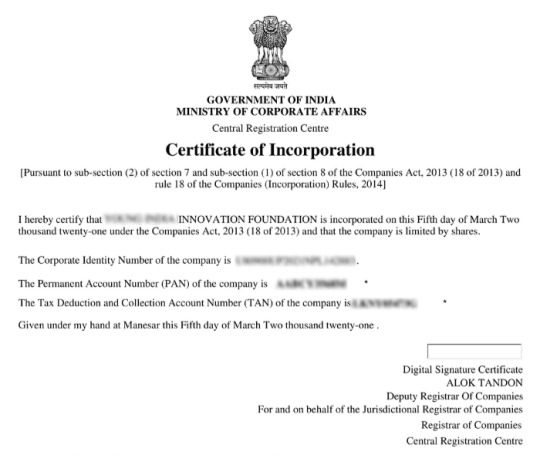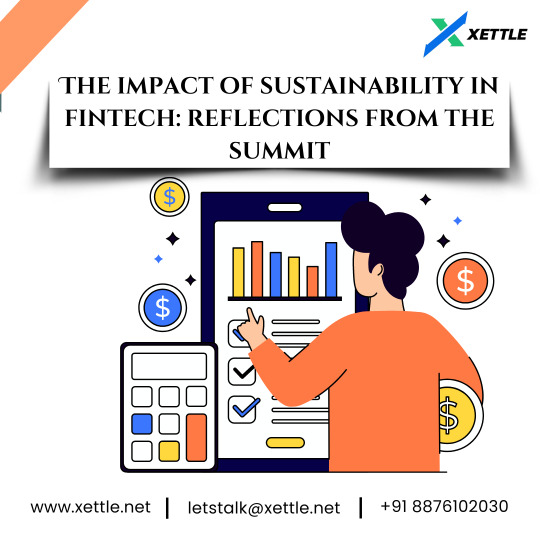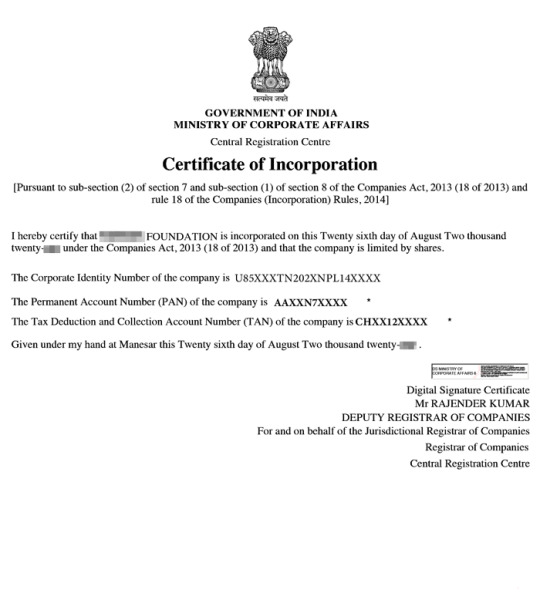#microfinance business
Text
📄MICROFINANCE management courses in Tanzania 🌕
Are you new in Microfinance business or do you want to Excel and become successful in this business..?
✅ Here is a Professional designed short course for running efficiently and effectively Microfinance Business.
✅ This course is practical based on best ways and proper skills for managing and running Microfinance and lending sector.
✅ It practically cover from Formation of Microfinance Business, developing Business plan, formulating a winning strategy, developing lending and recovery models, managing daily activities, loan sales, technology Aid, human resources management, BD and evaluation. 💪
✅ Our Trainers can also reach you at your office or place.
📞 0679 746 347 /0624 270 300
Call us now to Book for the Course. 🌕
Fees: Short Term Discount offer
Tzs 850,000/- only instead of 1,200,000/-
Authentic Management Academy
#microfinance company#management courses#tanzania#Authentic Management Academy#Manage Microfinance business#How to start and run Microfinance business in Tanzania
2 notes
·
View notes
Text
Microfinance appears as a ray of hope in a society where the most disadvantaged people frequently lack access to financial opportunities. Through the provision of financial services to people and communities that have been shut out of traditional banking institutions, this creative approach to banking improves lives. This essay will examine the fundamentals of microfinance, including its definition, characteristics, importance, and potential for transformation.
What is Microfinance?
Microfinance, also known as microcredit, is a specialized banking service aimed at providing financial assistance to low-income individuals or groups who lack access to traditional banking services. It encompasses a range of financial products such as microloans, savings accounts, and insurance, tailored to meet the unique needs of underserved communities. The primary goal of microfinance bank loan is to empower individuals to become self-sufficient by offering them a pathway to financial independence.
Features of Microfinance
Accessibility: Microfinance institutions operate in underserved areas, bridging the gap between financial institutions and marginalized communities. This accessibility is crucial in empowering those excluded from mainstream banking.
Small Loan Amounts: Unlike traditional loans, microfinance provides small loan amounts tailored to the specific needs of borrowers. This makes repayments manageable and ensures the sustainability of the lending model.
Group Lending: Microfinance often employs a group lending model, where community members form a group and collectively take responsibility for each other's loans. This fosters a sense of community and encourages accountability.
Significance of Microfinance
Microfinance plays a pivotal role in poverty alleviation and economic empowerment. By providing financial tools to those excluded from the formal banking sector, microfinance enables individuals to generate income, improve their standard of living, and break the cycle of poverty. Moreover, microfinance promotes entrepreneurship, financial inclusion, and gender equality, laying the foundation for sustainable development within communities.
Types of Microfinance Loans
Microcredit: This involves providing small loans to individuals, often entrepreneurs or small business owners, who need access to traditional banking services. Microcredit serves as a catalyst for entrepreneurship, empowering individuals to start or expand businesses and create income-generating opportunities.
Microsavings: Microsavings focus on encouraging individuals, particularly those with low incomes, to save small amounts regularly. By providing a secure place for savings, microsavings contribute to financial stability and create a foundation for future investments or emergencies.
Microinsurance: Microinsurance addresses the vulnerability of low-income individuals by providing them with affordable insurance coverage. This protects clients against unexpected events such as illness, crop failure, or natural disasters, shielding vulnerable communities from financial shocks.
Empowering Communities Through Microfinance
Microfinance has the power to transform lives and uplift entire communities. By providing access to financial services, microfinance enables individuals to pursue their entrepreneurial aspirations, support their families, and contribute to local economic development. Moreover, microfinance promotes financial inclusion, gender equality, and sustainable livelihoods, paving the way for a brighter and more equitable future.
Conclusion
Microfinance represents a powerful tool for empowering marginalized communities and driving inclusive economic growth. By understanding its definition, features, and significance, we can appreciate the transformative impact of microfinance loan and the opportunities they create for those in need. As we continue to champion financial inclusion and social empowerment, microfinance stands as a beacon of hope for a more just and prosperous world.
#micro loan#microfinance loan#micro business loan#personal micro loans#microfinance bank loan#microloan lenders
0 notes
Text
This article is all about making microfinance in Cambodia easy to understand. We’ll take a look at the background of microfinance in Cambodia and clarify its role as a different financing choice for businesses that might not fit the requirements of regular loans.
0 notes
Text

We are a private Science Technology Engineering and Mathematics (S.T.E.M.) Knowledge and Research Centre. | We conduct Agricultural and Allied Project Developments. | And We are offering Microfinance Cooperative Solutions.
Motto: Building Africa's hope for young Africans better future.
Yeah, just in case you don't know… That's WHO WE ARE!
0 notes
Text
Business Due diligence for investing in Microfinance Institutions
Business Due Diligence for Investing in Microfinance Institutions: Balancing Social and Financial Returns Microfinance Institutions (MFIs) have emerged as a powerful instrument for fostering financial inclusion and social development. These institutions serve the unbanked and underprivileged populations by providing them with access to essential financial services, including credit, savings, and insurance. Investors are increasingly drawn to MFIs because they offer the potential for not only financial returns but also the satisfaction of contributing to positive social change. However, investing in MFIs is not without risks, and it is essential for investors to conduct thorough due diligence to ensure that their investment aligns with both their financial objectives and their commitment to social responsibility Business Due diligence for investing in Microfinance Institutions
#microfinance institutions#impact assessment#Business Due diligence for investing in Microfinance Institutions
0 notes
Text
Gandhi's Legacy to Rural Empowerment from 'Swadeshi'
Discover the transformative impact of microfinance in rural India and how it aligns with Mahatma Gandhi's principles.
Gandhi's Legacy to Rural Empowerment from 'Swadeshi' and Microfinance Impact in rural growth.
https://www.samratfinancialbanking.com/post/the-role-of-microfinance-in-empowering-rural-india-gandhi-s-legacy
#microfinance#ruralindia#MahatmaGandhi#GandhiJayanti#financial planning#financial freedom#loans#small business
0 notes
Text
0 notes
Text
Online NGO Registration - Types, Procedure, Fees, Documents Required
Establishing a Non-Government Organization (NGO) helps you work for the betterment and improvement of society. To register an NGO, you need to understand what they are, how they work, and the registration requirements. There are three forms of NGO - Section 8 company, Society, and Trust.
In effect from April 1, 2021, all NGOs need to file Form CSR-1 to register with Central Government to get CSR funding. Furthermore, FCRA registration is required if the NGO is seeking funds from foreign sources.
A non-governmental organization (NGO) is a non-profit organization established by a group of natural persons for charitable and social purposes.
Types of NGO Registration:
Section 8 Company Registration under the Companies Act, 2013
Trust Registration under the Trust Act, 1882
Society Registration under the Societies Registration Act, 1860
NGO Registration fees:
The total cost of registering a section 8 company, including government and professional fees, would be Rs. 4,999
The total cost of trust registration, including government and professional fees, would be Rs. 13,999
The total cost of society registration, including government and professional fees, would be Rs. 12,999
To know more (click here)

#business#india#startup#manage business#business growth#partnership firm registration#ngo#ngoindia#ngo in noida#ngo donation#ngo registration#ngo for children#ngo in india#private limited company registration in chennai#section 8 registration#section 8 microfinance company registratioin#section 8 company in india
0 notes
Text

In microfinance, tombstones usually include the include name, picture, and story of a low income borrower.
Names and pictures are very personal and help lenders stand out and get clicks and likes. For a nonprofit like ourselves, it helps raise donations so we can help more people.
However, I believe sharing borrower's pictures and names on social media and other outlets are a violation of privacy even if the borrower gives consent. I also think consent is given under duress. You want money? Give us consent to take your picture, tell the world how poor you are, how we are helping you, and then we will give you money.
When I put myself in the shoes of our borrowers, I realize I wouldn't want my own name and picture being showcased as needy person. I have my pride.
We've shared pictures and names in the past ourselves, but we're learning and trying to do better even if it hurts our fundraising.
0 notes
Text
Digital Banking | Bankoyo
A quick path to your infrastructure model powered by APIs is made possible by our experienced fintech solutions at affordable pricing. Visit our website for more information.

#bankoyo#moneytransfer#digitalbanking#business#onlinebanking#london#compliance#currencyexchange#payments#banks#operations#microfinance#institutions#innovations#startups#uk
0 notes
Text
If anyone still wants to give money today to a good, registered actual charitable endeavor today that helps people, may I make a suggestion?
Since about 2016 I've been part of Kiva helping make microfinance loans to people looking to help grow small businesses or help family farms, etc. in underserved, underfunded areas of the world. This is not exactly traditional charity as we think of it. I'm basically putting my money into small loan funds run by non-profit organizers, who in turn help administer the loans to their clients. I get to choose which applicants I want to help, and get to see their stories and follow along as they pay back their loan and work towards their project goals. You really do get the sense that you're helping an individual.
And what's really great is that your money comes back to you as the loan gets repayed, and you can in turn keep loaning that money out, helping more people. Over the seven or so years I've been loaning on Kiva, I think I've only had one complete default. I've lost some in currency fluctuations, but it's a fairly stable system.
It's not a huge commitment of cash. I do the $25 loan level on each of my loans. But over the years each $25 loan has just kept rolling over and kept rolling over, and has gone out into over thirty countries in the world helping people. Over my time there, I've transferred in $275 to make loans with, but that money has made almost $1000 in total loans with repayments being loaned multiple times. It makes me feel like my giving is going a little farther, you know?
And what's neat is that you can join a "team" and get the social aspect of investing as a group, and having people there helping look through loans that are available. The team I'm on is the Church of the Flying Spaghetti Monster. LOL. Look us up if you decide to give it a try.
33 notes
·
View notes
Text
The impact of sustainability in fintech: reflections from the summit

In recent years, the Fintech industry has witnessed a paradigm shift towards sustainability, with an increasing emphasis on integrating environmental, social, and governance (ESG) factors into financial decision-making processes. This transformative trend took center stage at the latest Fintech Summit, where industry leaders converged to explore the intersection of sustainability and financial technology. Among the prominent voices shaping this discourse was Xettle Technologies, a trailblazer in Fintech software solutions, whose commitment to sustainability is driving innovation and reshaping the future of finance.
Against the backdrop of global challenges such as climate change, resource depletion, and social inequality, the imperative for sustainable finance has never been greater. The Fintech Summit provided a platform for thought leaders to reflect on the role of technology in advancing sustainability goals and fostering a more resilient and equitable financial ecosystem.
At the heart of the discussions was the recognition that sustainability is not just a moral imperative but also a strategic imperative for Fintech firms. By integrating ESG considerations into their operations, products, and services, Fintech companies can mitigate risks, enhance resilience, and unlock new opportunities for growth and value creation. Xettle Technologies’ representatives underscored the company’s commitment to sustainability, highlighting how it is embedded in the company’s culture, innovation agenda, and business strategy.
One of the key themes that emerged from the summit was the role of Fintech in driving sustainable investment. Through innovative solutions such as green bonds, impact investing platforms, and ESG scoring algorithms, Fintech firms are empowering investors to allocate capital towards environmentally and socially responsible projects and companies. Xettle Technologies showcased its suite of Fintech software solutions designed to facilitate sustainable investing, enabling financial institutions and investors to align their portfolios with their values and sustainability objectives.
Moreover, the summit explored the transformative potential of blockchain technology in advancing sustainability goals. By enhancing transparency, traceability, and accountability in supply chains, blockchain can help address issues such as deforestation, forced labor, and conflict minerals. Xettle Technologies’ experts elaborated on the company’s blockchain-based solutions for supply chain finance and sustainability reporting, emphasizing their role in promoting ethical sourcing, responsible production, and fair labor practices.
In addition to sustainable investing and supply chain transparency, the summit delved into the role of Fintech in promoting financial inclusion and resilience. By leveraging technology and data analytics, Fintech firms can expand access to financial services for underserved populations, empower small and medium-sized enterprises (SMEs), and build more inclusive and resilient communities. Xettle Technologies’ representatives shared insights into the company’s initiatives to support financial inclusion through digital payments, microfinance, and alternative credit scoring models.
Furthermore, the summit highlighted the importance of collaboration and partnership in advancing sustainability goals. Recognizing the interconnected nature of sustainability challenges, participants underscored the need for cross-sectoral collaboration between Fintech firms, financial institutions, governments, civil society, and academia. Xettle Technologies reiterated its commitment to collaboration, emphasizing its partnerships with industry stakeholders to drive collective action and scale impact.
Looking ahead, the future of sustainability in Fintech appears promising yet complex. As Fintech firms continue to innovate and disrupt traditional financial systems, they must prioritize sustainability as a core principle and driver of value creation. Xettle Technologies’ visionaries reiterated their commitment to sustainability, pledging to harness the power of technology to build a more sustainable, inclusive, and resilient financial ecosystem for future generations.
In conclusion, the Fintech Summit served as a catalyst for reflection and action on the role of sustainability in shaping the future of finance. From sustainable investing and supply chain transparency to financial inclusion and resilience, Fintech has the potential to drive positive change and advance sustainability goals on a global scale. Xettle Technologies’ leadership in integrating sustainability into its Fintech solutions exemplifies its dedication to driving innovation and creating shared value for society and the planet. As the industry continues to evolve, collaboration, innovation, and sustainability will be key drivers of success in building a more sustainable and resilient financial future.
2 notes
·
View notes
Text
Apply Online for Quick Loan with Instant Approval
We often run out of finance and need quick funding to fulfill our dreams and aims. The obvious solution for the same is to choose for the loan. But in the fear of rejections or due to less knowledge we often end up taking financial aid from informal sources at higher interest rates. This puts our life in debt and creates financial stress. To avoid all these things the easier solution is to opt for the loan that can help you to overcome your financially harder time.
There are many financial aid companies that are making the tough task of taking loans easy by helping the borrowers in documentations and processing of the loan. With the introduction of technology many financial aid companies have inculcated and have shifted successfully to the technology to ease the process of loans. Now you can apply online for loan online and avail of the loan without much trouble. The article below is an attempt to make the readers understand about the loan providers companies. Further it will explain to you the benefits of choosing the loan providers. At the end, the article will conclude by giving you the list of top loan providers in Delhi.
What are loan Providers companies? What are the benefits of choosing Loan Providers?
Loan providers are companies or financial institutions that offer loans to individuals, businesses, or other entities in need of financial assistance. You can apply for quick loan and fulfill your dreams. These loans can be used for various purposes, such as personal expenses, buying a house or a car, funding a business venture, or consolidating debts.
Some common types of loan providers include:
Banks
Credit Unions
Online Lenders
Peer-to-Peer Lending Platforms
Microfinance Institutions
Payday Lenders
Credit Card Companies
Finance Companies
Choosing loan providers can offer several benefits, depending on your financial needs and circumstances. Here are some of the advantages of opting for loan providers:
Access to Funds: Loan providers offer you access to the funds you need when you are facing financial constraints or have specific financial goals, such as purchasing a home or funding a business.
Flexible Repayment Options: Many loan providers offer various repayment plans, allowing you to choose a schedule that aligns with your income and financial capabilities. This flexibility can make it easier to manage your debt.
Quick Processing and Approval: These companies offer easy loan applications to the borrowers. With the advent of online lending platforms, the loan application and approval process have become quicker and more streamlined. In many cases, you can receive loan approval within a short period, providing you with swift access to funds.
Build Credit History: Responsible borrowing and timely repayments can help you build a positive credit history. A good credit score can open doors to better loan options and lower interest rates in the future.
Consolidating Debt: Loan providers may offer debt consolidation loans, allowing you to combine multiple debts into a single loan with a potentially lower interest rate. This can simplify your finances and reduce overall interest costs.
Competitive Interest Rates: By shopping around and comparing different loan providers, you can find competitive interest rates that suit your budget and save you money over time.
Specialized Loan Products: Some loan providers offer specialized loan products tailored to specific needs, such as home loans, auto loans, student loans, or small business loans.
Online Accessibility: Many loan providers now offer online applications, making it convenient to apply for a loan from the comfort of your home and access customer support through digital channels.
Avoiding Depletion of Savings: Taking out a loan for planned expenses can help you preserve your savings for emergencies or unexpected financial situations.
Top Loan Providers in Delhi
Here is the list of top finance companies in Delhi with their locations. These loan companies in Delhi shall help you to get instant loan the assistance you need in financial aid matters.
My Mudra: It is a largest growing fintech having headquartered in Delhi. The company is providing financial services since decades.
Credset: It is a loan provider agency based in Karol Bagh Delhi.
Finance loan in India online
Trust: They are providing different types of loans and have been based out in Netaji Subhash Palace, Pitampura, Delhi.
KG Loan Expert Pvt. Ltd: It is a loan provider agency based in Netaji Subhash Palace in Delhi.
GRD India Financial Service: This is a financial aid provider company based out in Ashok Nagar Delhi.
Conclusion
It's essential to carefully consider the terms and conditions, interest rates, and repayment terms offered by different loan providers before committing to a loan. Borrowers should also ensure that they can comfortably meet their repayment obligations to avoid financial difficulties. My Mudra is one of the top fintech organizations which has been making loans and helping people since decades.

#Apply Online for Loans#apply for quick loan#loan instant approval#get instant loan#loan in India online#top fintech organizations
2 notes
·
View notes
Text
wow i have been AWAY. what's going on with me? well if you've been following my youtube channel or my newsletter, you'll see i've made some changes.
first off: i'm pivoting my content from media to finance. my videos used to be able watching a movie or show and critiquing it, hopefully in a new way. but i stopped this because of one reason: it burnt me out like you wouldn't believe. i hated it. i hated watching things on a schedule, i hated having to optimise my attention span to fit a whole video into a week, i hated having to find new things to watch that i was interested in, and i hated finding interesting and unique takes on media.
my new videos are more like this now...

two of these videos are about creative writing, one is a chat with a fellow youtuber who used to go by the name gutian, but three are about finance. i'm getting really investing in this idea of microfinance, specifically what muhammad yunus has to say about it.
so this is where i'm going with my channel. i might still be uploading some media videos here and there (i have a Don't Starve video/series coming up), but mostly the reason i have been able to upload twice a week and batch videos is because i'm actually interested in the subjects i'm talking about now. funny that!
second: i want to pivot my business into this realm as well. i'm still figuring stuff out but where i want to go is helping real people out of poverty. i want to partner with businesses who will give people money and resources to help themselves. that's one direction to go in, at least. i have a million more ideas. but who knows where they're going?
that's it for now 🤟
3 notes
·
View notes
Text
Business finance loan

Secure the funds you need to grow your business with our flexible business finance loan solutions. Whether you're starting a new venture or expanding an existing one, our competitive interest rates and customizable repayment plans will ensure your financial success. Simplify your path to progress - apply today!
#microfinance in india#Business financing#business loan for startup#nbfc Loan Company#mfi in India#top mfi in india
0 notes
Text
Section 8 Microfinance Company Registration - Fees, Process, Documents
Section 8 Microfinance Company or Micro-finance Institution (MFI) is a financial organisation that provides credit to people and organisations who are denied access to traditional financial institutions due to poverty, occupation, ethnicity, religion, or nationality.
A Microfinance Company is registered with the Registrar of Companies as per Section 8 of the Indian Companies Act, 2013. Thus, it comes under the Ministry of Corporate Affairs (MCA).
Microfinance companies are the most convenient business to register that can provide unsecured loans without RBI approval at rates upto 26% p.a.
Benefits of Section 8 Microfinance Company:
No RBI Approval required
Can lend Unsecured loan
No Demographic Barrier
Best Rate of Interest
Minimum capital not required
Defaulters can be sued for non-payment
Limited Compliances
Documents required for Section 8 Microfinance Company:
PAN & Aadhar Card of both the directors
Bank Statement with the address of both the directors (not older than 2 months)
Passport Size Photo
Email address & Phone number
Utility Bill of the premises
To know more (click here)

#business#startup#india#business growth#manage business#partnership firm registration#nidhi company registration#private limited company registration in bangalore#private limited company registration in chennai#private limited company registration online#section 8 microfinance company registratioin#microfinance#section 8 registration
0 notes